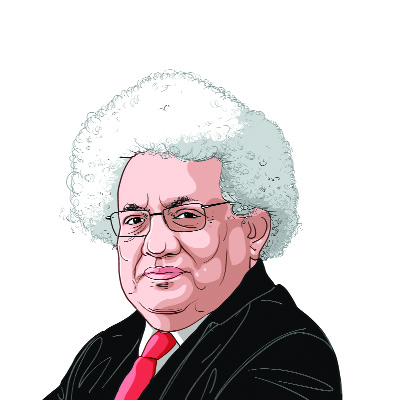Opinion Keep it local
Two of the worst legacies of British Rule are over-centralisation of power and the idea that uniformity means equality....
Two of the worst legacies of British Rule are over-centralisation of power and the idea that uniformity means equality. The UK has slowly cured itself of over-centralisation by devolving power to regional assemblies but the idea of uniformity dies hard.
India had a decentralised arrangement before 1947,and had the Cabinet Mission Plan been accepted,India would have had a weak Centre and strong states. But that was not to be. So Independent India began with a centralising bias in the Constitution,despite the separate lists of Central,provincial and concurrent subjects.
Sixty years on,with a people who have an experience of democracy and entitlement to some rights,the problem is that the Centre feels compelled to meet new demands but does not have the capacity or even the political clout to make things happen. Take the idea of reservations for Muslims. There are reports on the state of the minorities by the Sachar Committee and the Ranganath Mishra Committee and the case for affirmative action is strong,but so are the political constraints.
Now the Supreme Court has shown the way out. Let reservation for Muslims be tackled at the state level. Andhra Pradesh can implement its quota. Kerala,Tamil Nadu,Karnataka,Bihar and West Bengal are in a similar position. The beauty is that the quotas are different in these states. But the Centre should see that as the solution,not a difficulty. It should pass an enabling legislation to allow states to institute quotas but it should not impose a uniform quota. The Muslim population is not uniformly distributed across India nor is deprivation identical among Muslims.
This principle can be extended to other areas. The problem of defining BPL is acute for many reasons,the principal reason being that there is a drive to define a single standard across all poor. The NSS-based measure is based on calories. In Latin American countries,they define calorie levels as different for men and women,for pregnant and infant nursing women and other women and then try to account for their health status. After all,each of us has slightly different needs even at the basic level.
The idea of a single standard is also used by the World Bank,the Tendulkar Committee and others. The only problem is that these are different minima. So the number of BPL can be anywhere between 300 and 800 million people. (It may be easier to define the non-poor and subtract their number from the total population.) But this again would not matter unless we wanted to attach entitlements to the BPL category. The larger the number,the more costly it is to honour the entitlement.
The Supreme Court has also dealt two blows to this whole issue. One is to point out what has been obvious to many of usthat the Public Distribution System (PDS) is an abject failure and a mess. It has also come up with its own poverty lineat Rs 100 a day,people are eligible for 35 kg foodgrains per family.
Given the size of this task and the certainty that the PDS cannot manage it,I think the Centre should let the states implement the food security entitlement. Of course,the best way to do this is to give the BPL money to buy the food than food itself,but that is far too radical for this government and would be denounced as ignorant and impossible. Bihar has already shown an imaginative way of effecting direct transfer of money and Tamil Nadu and Kerala have been in the vanguard of implementing effective anti-poverty policies for decades. Prices of foodgrains also vary from state to state,as one would expect in a large area. It would be folly to deliver physical quantities of foodgrains with all the possible wastage and leakages and also transfer an identical amount to each and every BPL family across the country.
The point is that even the poor are not all alike. So,treat them as individuals,let there be variations in provision as indicated by local circumstances,and let the local state deliver the cure.





